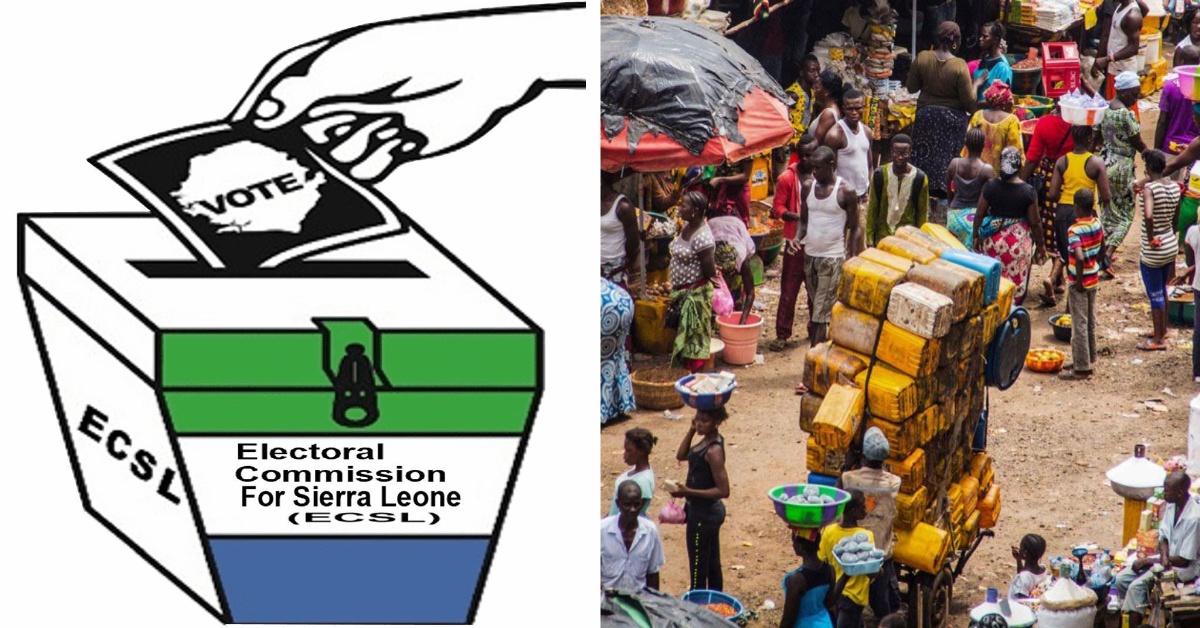Since the Electoral Commission of Sierra Leone (ECSL) announced that the West African nation will hold its multi-tier elections on 24th June 2023, the elections will mark the fifth election to be held by Sierra Leone since its ten-year interregnum.
Sierra Leoneans will be able to vote for their preferred President, parliamentarians, mayors/chairpersons and councillors.
Political analysts have opined that the ruling Sierra Leone People’s Party (SLPP) will face their toughest opposition from the All People’s Congress (APC). This presumption didn’t seem true earlier this year until the third force party, National Grand Coalition (NGC) party experienced a resignation galore after its presidential candidate in the 2018 elections, Kandeh Kolleh Yumkella suggested a coalition with the ruling SLPP.
Most of the party’s senior members including its chairman and leader, Dr Dennis Bright and Diaspora Coordinator, Alan Luke resigned for reasons bordering on national interest as against self-interest. Luke said that the party has lost its patriotic trajectory and that some members put their interests above national interest.
Hence, it is an irrefutable presumption that the state of the elections will be the traditional contest between the SLPP and the APC that has been on since the 1967 elections.
Some political analysts also believe that this election will be more closely contested than the 2018 elections and this is hinged principally on the economy and unemployment.
With the stage already set for the elections as both the SLPP and APC now have their candidates to contest with the APC, this will mean that the former Foreign Affairs Minister and Bank Governor, Samura Kamara will face President Julius Maada Bio for the second time.
One of the key issues that most Sierra Leoneans might take to the polls is the staggering inflation that is present in the country.
When President Bio took power in 2018 inflation rate was just above 16 per cent and he was able to combat it to 11 per cent in 2021. Economists believed that the country’s economy grew by 3.2 per cent in 2021 after a 2 per cent contraction in the preceding year. However, it spiralled out of control in the following year as prices for commodities and services doubled by the end of 2022.
At current, Statista believes that the inflation rate is at a staggering 26.81 per cent. For example, a bag of rice in Sierra Leone now costs an average NLe 590 as against NLe 250 in 2018, this also means that a bag of rice is almost the same as the country’s minimum wage; NLe 600. (Data Firm, Statista recorded that food inflation alone is at 46 per cent)
Although experts blame this on the war in Ukraine, the country’s currency has plummeted against the US Dollar and other foreign currencies. Some business people have expressed concern as the value of Leones continues to depreciate against other foreign currencies.
Another problem that is facing the country at present is the high rate of unemployment in the country.
According to the International Office for Migration (IOM), 60 per cent of young people in Sierra Leone are unemployed and this high rate is one of the highest in the sub-region, believed to be the reason young people are migrating to seek greener pastures elsewhere. In fact, a study conducted by 24/7 tempo listed Sierra Leone in the top spot of countries where young people want to leave. It reviewed the Potential Net Migration Index of countries. Liberia is second on the list. The World Bank believed that over 70 per cent of the country’s population is young, this implies most Sierra Leoneans are believed to want to leave the country.
Although it is an irrefutable presumption that there has been a voting pattern in past elections, especially in 2012 and 2018, some believe that Sierra Leoneans, especially young people, might consider the glaring economic issues when going to the polls. In other words, there is a growing number of young people choosing national interest above self-interest.
The presumption, however, is negated by a study conducted by Afrobarometer in 2021 which proved that more Sierra Leoneans trust in the ruling government than opposition parties.
Whatever the case may be, Sierra Leoneans will face the polls on 24 June and the truth will reveal itself in their decision.
Could it be Maada Bio or Samura Kamara?


 Post a comment
Post a comment








